Bearded Dragons are native to Australia and are popular pets across the world. Their unique appearance and calm temperament make them a favorite among reptile enthusiasts. As a bearded dragon owner, you are responsible for providing them with the proper diet that meets their nutritional needs. With so many food options available, it can be tough to decide what your pet can and cannot eat. Today’s blog post will focus on a common vegetable, the tomato, and whether you should include it in your bearded dragon’s diet.
Pros and Cons of Having a Bearded Dragon As a Pet
Bearded dragons have probably become one of the most widespread pet choices of today’s generation, and for some very good reasons. These reptiles are known for their friendly nature, their easy-to-manage size, and their ability to adapt to different environments.
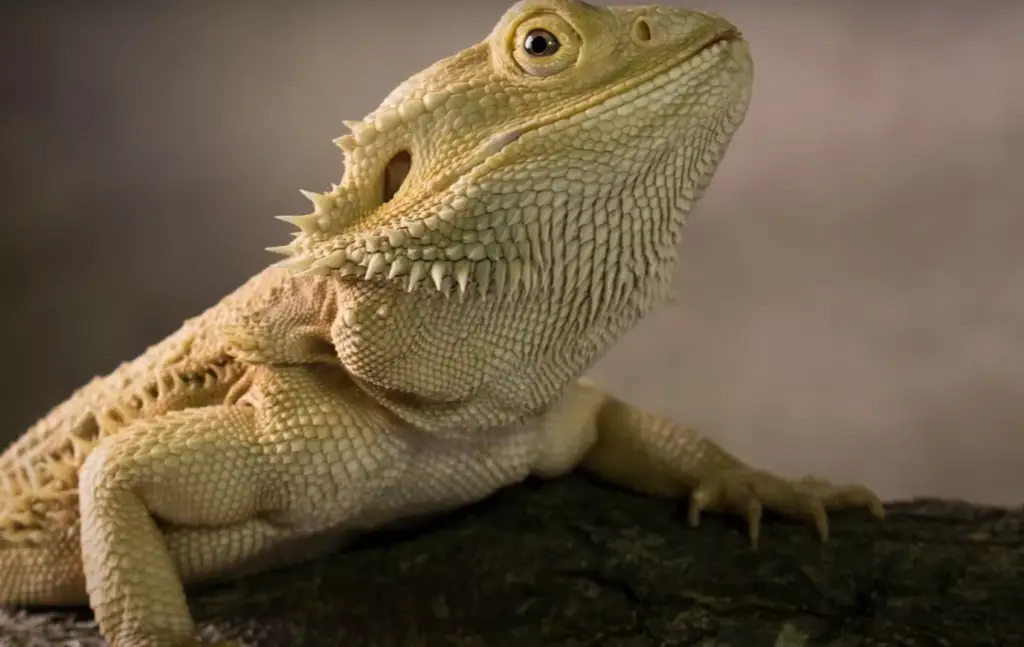
However, as with any other pet out there, there are pros and cons involved in taking care of a bearded dragon. We will start with discussing some of the most important aspects of having a bearded dragon as a pet, and help you decide if they are the right fit for you.
Pros of Having a Bearded Dragon As a Pet
- Easy to Manage: One of the key benefits of having a bearded dragon is that they are very easy to take care of. They don’t require a lot of space, and neither do they need a lot of attention from their owners. They can rest in their terrarium for long periods and still be content, especially if you provide them with enough food and water.
- Sociable and Friendly Nature: Bearded dragons are quite sociable and friendly creatures. They enjoy the company of their owners and even enjoy being handled. They become familiar and affectionate with time, making them an excellent pet for those who seek companionship. [1]
- Omnivorous Diet:These unusual pets eat a range of food, which means you won’t have a problem feeding them. They are omnivorous in nature, which means that they eat both plants and animals. When choosing what to feed them, ensure that you provide them with a balanced diet with an adequate supply of both food groups.
- Low-Maintenance Pet: If you are looking for a pet that won’t take up too much of your time, then a bearded dragon will be the perfect option. They may not be as needy as other pets, and they won’t require you to take them for a walk or exercise as you would with a dog.
Cons of Having a Bearded Dragon As a Pet:
- Lack of Cuddly Nature: Bearded dragons, while sociable and friendly, are not necessarily known to be cuddly pets. They are not dogs or cats, so don’t expect them to show affection in the same way. While they enjoy the company of their owners, they may not enjoy being held or cuddled by them.
- Expensive to Set-up: While bearded dragons are generally easy to take care of, you will most likely have to invest heavily in setting up their terrarium. You need to provide them with the right kind of environment with the right lighting, heat source, and other necessary equipment. However, once you’ve set everything up, the cost of maintenance won’t be as high.
- Temperature Regulation: As with most reptiles, temperature regulation is critical to the health of bearded dragons. You must ensure that their terrarium has the right temperature gradient, providing them with the right balance of heat and shade, or else they may become ill or die.
- Need for Space: While bearded dragons are low-maintenance and may not need attention as often as other pets, they still require ample space. They need places to hide, bask, and move around, which means that you will need to provide them with a reasonably sized enclosure.
Bearded dragons are excellent pets for those seeking something easy to manage and low-maintenance. They are friendly, omnivorous, and easy to feed, which makes them enjoyable to take care of. However, there are a few cons to keep in mind, such as their need for space and temperature regulation. With proper care and attention, however, you can enjoy a long and fulfilling friendship with your bearded dragon.
Diet of a Bearded Dragon
Bearded dragons are really unusual creatures with distinct personalities. They are also very popular as pets. If you are considering getting a bearded dragon, it is crucial for you to know what to feed them.
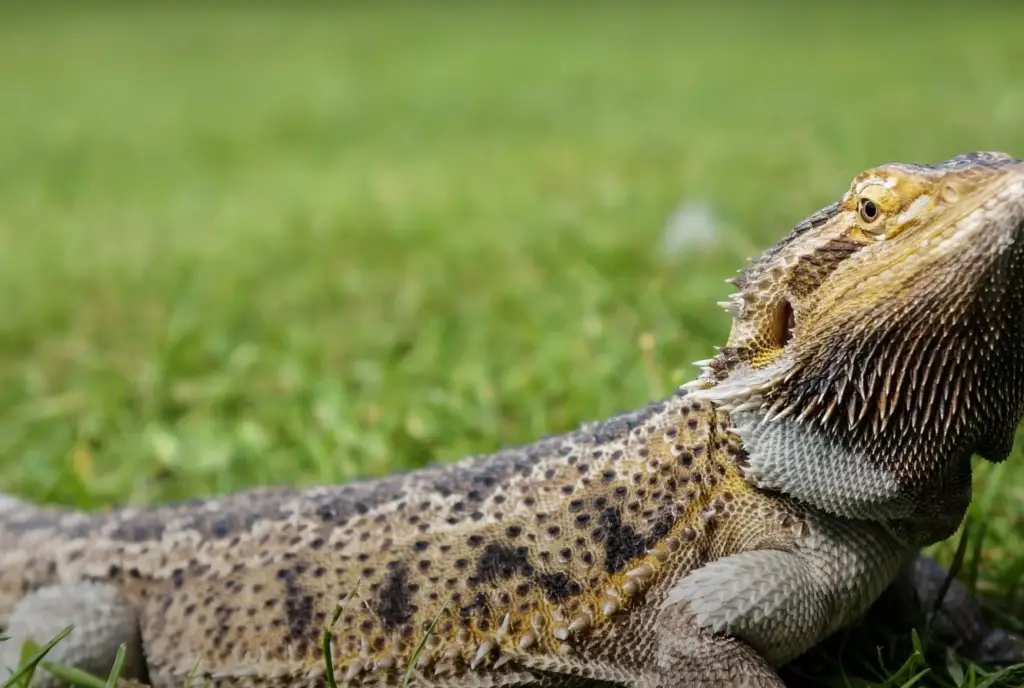
As you already know, bearded dragons are omnivores, and it is essential to ensure that their diet includes a variety of plants, vegetables, and insects. This part of our article will provide you with everything you need to know about a bearded dragon’s diet.
Plants and Vegetables
Leafy green vegetables should make up around 25%of the diet of your bearded dragon. These could include collard greens, kale, bok choy, and mustard greens. Vegetables such as carrots, squash, sweet potatoes and bell peppers can also be incorporated. It is essential to make sure that these vegetables and plants are finely chopped before you feed them to your bearded dragon.
Fruits
Fruits should only make up around 10% of the diet of your reptile pet. Fruits such as apples, bananas, strawberries, and blueberries are good options. However, it is important to feed fruits sparingly, as they are high in sugar.
Insects
Insects should make up around 65%of your pet’s diet. Crickets, mealworms, and waxworms are an excellent source of protein for your bearded dragon. They also require a variety of insects to prevent boredom. Be sure to feed them gut-loaded insects. This means feeding the insects a nutritious diet before you feed them to the bearded dragon. 4. Supplements
Supplements are essential for your bearded dragon’s health. You should sprinkle calcium powder on their food at least three times a week. You can also give them a vitamin supplement, but be sure not to overdo it. Over-supplementing can lead to health problems.
Water
Bearded dragons need access to fresh water at all times. You can provide them with water via a shallow dish in their enclosure.
To summarize, a healthy diet for your bearded dragon should consist of a variety of plants, vegetables, insects, and supplements. The key is to ensure that their diet is well-balanced and meets their nutritional requirements. A lack of proper nutrition can lead to health issues such as metabolic bone disease. Remember, when feeding your bearded dragon, it is crucial to follow the recommended guidelines to ensure their long-term health and happiness. [2]
Vegetables in Bearded Dragons’ Diet
As a bearded dragon owner, you want to ensure that your beardie has a balanced and healthy diet. While it is common knowledge that bearded dragons need a diet high in protein, it is equally important to incorporate vegetables in their diet also.
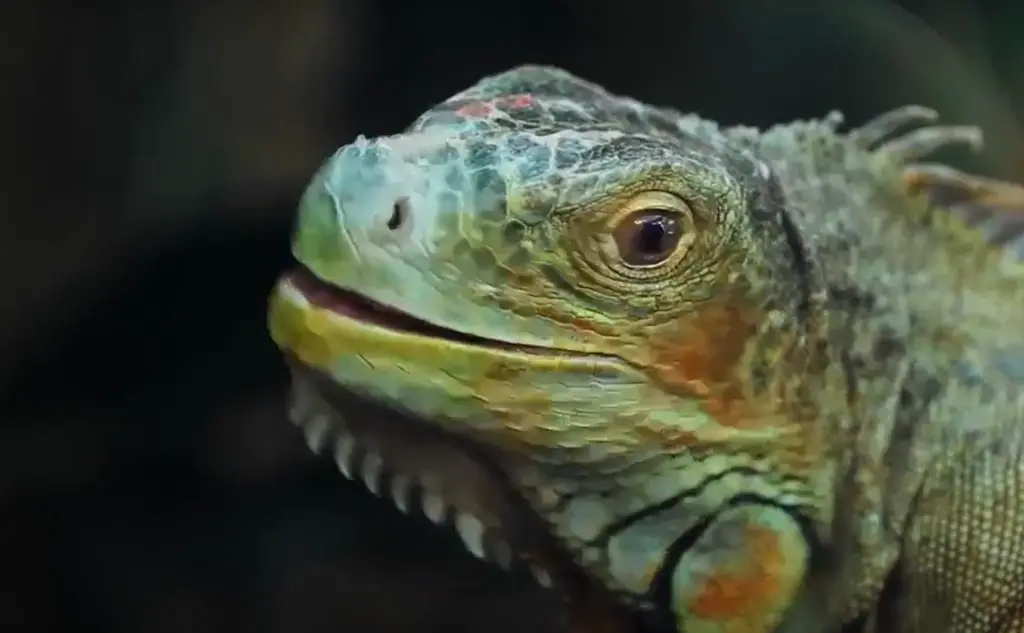
Now we invite you to check the benefits of incorporating vegetables in the diet of your bearded dragon and we will give you some ideas on how to include vegetables in their meals.
Importance of vegetables in a beardie’s diet
While protein is important for your bearded dragon’s growth and development, a diet low in vegetables can lead to various health problems such as obesity and kidney disease. Vegetables are an excellent source of minerals and vitamins necessary for your pet to maintain optimal health. To ensure that your bearded dragon is getting the right balance of protein and vegetables, it is recommended that you feed them a diet which consists of 80% insects and 20% vegetables. [2]
Vegetables, rich in nutrients
When it comes to vegetables, some of them are more nutrient-rich than others. Vegetables such as butternut squash, bell peppers, and collard greens are all excellent options to incorporate in the diet of your bearded dragon. Collard greens, in particular, are high in calcium, which is essential for your bearded dragon’s bone health. Remember to always feed your bearded dragon fresh vegetables and avoid feeding them anything that has been treated with pesticides.
Preparing vegetables for your bearded dragon
It is highly important to properly prepare the vegetables which you are going to feed to your beardie. Bearded dragons are unable to digest uncooked vegetables, so they must be cooked before feeding. Some ways to prepare vegetables include boiling, baking, and steaming. MAke sure you cut the vegetables into small pieces and remove any seeds or stems that may be harmful to your bearded dragon.
Including vegetables in your bearded dragon’s meals
Vegetables may be included in the beardie’s meals in various ways. You can mix chopped vegetables with their regular insect diet or feed them separately. You can also buy specialized pellets that include a mix of vegetables in them.
You can also grow your own vegetables in a garden to give your pet natural and fresh options.How much vegetables to feed a bearded dragon?
It is important to remember that vegetables should only make up 20% of the diet of your beardie. This means that you should not feed them vegetables every day. The amount of vegetables you feed your bearded dragon is directly related to the size and age of your reptile .
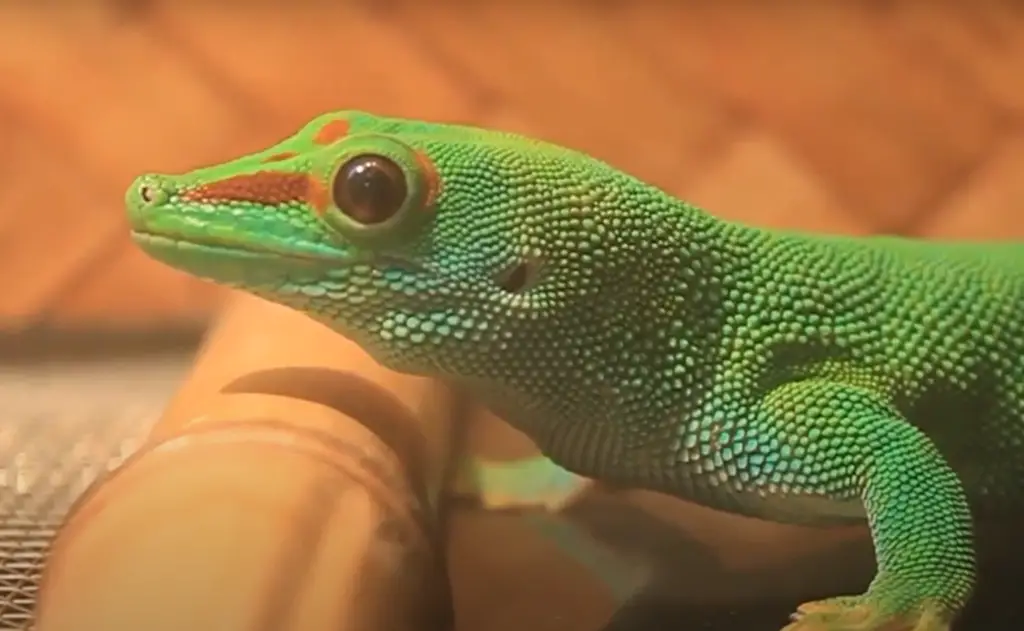
A general rule of thumb is to feed them a few small pieces of vegetables every other day. As your bearded dragon grows, you can slowly increase the amount of vegetables you feed them.
Tomatoes for a Bearded Dragon: Benefits and Drawbacks
Feeding your bearded dragon with various vegetables can be a challenge, especially when it comes to tomatoes. As a reptile owner, it is your responsibility to know what food you should and shouldn’t feed your bearded dragon. In this blog post, we will explore the benefits and drawbacks of giving tomatoes to your bearded dragon.
Advantages of feeding your bearded dragon tomatoes
Nutritional Value
Tomatoes are loaded with various vitamins and minerals, for example vitamin C, vitamin K, folate, and potassium, which are essential for your bearded dragon’s health.
Hydration
Tomatoes are a good source of water, which can aid in keeping your bearded dragon hydrated. It can be a great supplement during the hotter months when your bearded dragon needs more hydration.
Variety
Offering your bearded dragon with different types of vegetables can promote better health and prevent boredom. Adding tomatoes to their diet is a great way to add some variety and taste to their meals.
Disadvantages of feeding your bearded dragon tomatoes
High Content of Acid
Tomatoes are rich in acid, which can cause digestive problems in bearded dragons. It can also lead to gastrointestinal distress, such as stomach aches and diarrhea. [3]
High Sugar Content
Tomatoes also contain high amounts of sugar, which can harm your bearded dragon’s liver and cause obesity. Too much sugar can also lead to metabolic bone disease and other health issues.
Solanine Poisoning
It is important to note that these vegetables belong to the nightshade family, which can produce solanine, a toxic chemical that can cause health issues such as vomiting, diarrhea, and lethargy in bearded dragons. [3]
Choking Hazards
Tomatoes can be hard for digestion, and their skin and seeds can pose a choking hazard to your bearded dragon. Ensure to remove the skin and seeds before giving tomatoes to your bearded dragon.
Tomatoes can be nutritious and hydrating for your bearded dragon, but they also pose some health risks. It’s essential to feed tomatoes in moderation and to choose ripe tomatoes to prevent solanine poisoning. As a responsible bearded dragon owner, you should always research a new food before giving it to your pet. A well-balanced diet with a variety of vegetables is essential for keeping your bearded dragon healthy and happy.
Health Value of Tomatoes for a Bearded Dragon
Bearded dragons are adorable reptiles that are fast becoming a widespread option for pet owners. These creatures are omnivorous and require a careful balance of proteins, greens, and fruits to maintain their health. When you are feeding your reptile pet, you might wonder if tomatoes are an acceptable choice. In this part we’ll look at the reasons why you can feed this fruit to your pet, how to prepare it, and how much to give. Let’s dive in!
Tomatoes are a nutrient-packed fruit that can benefit your bearded dragon. These fruits contain vitamins A, C, and K, along with minerals like potassium and iron. The beta-carotene found in tomatoes also aids in improving eyesight and bolstering the immune system.However, it’s essential to prepare the tomato in the right way before you give it to your bearded dragon. Peel off the tomato’s skin and remove the seeds in order to avoid choking hazards. Remember, a bearded dragon’s meal size should only be the size of their heads, so be careful not to overfeed them.
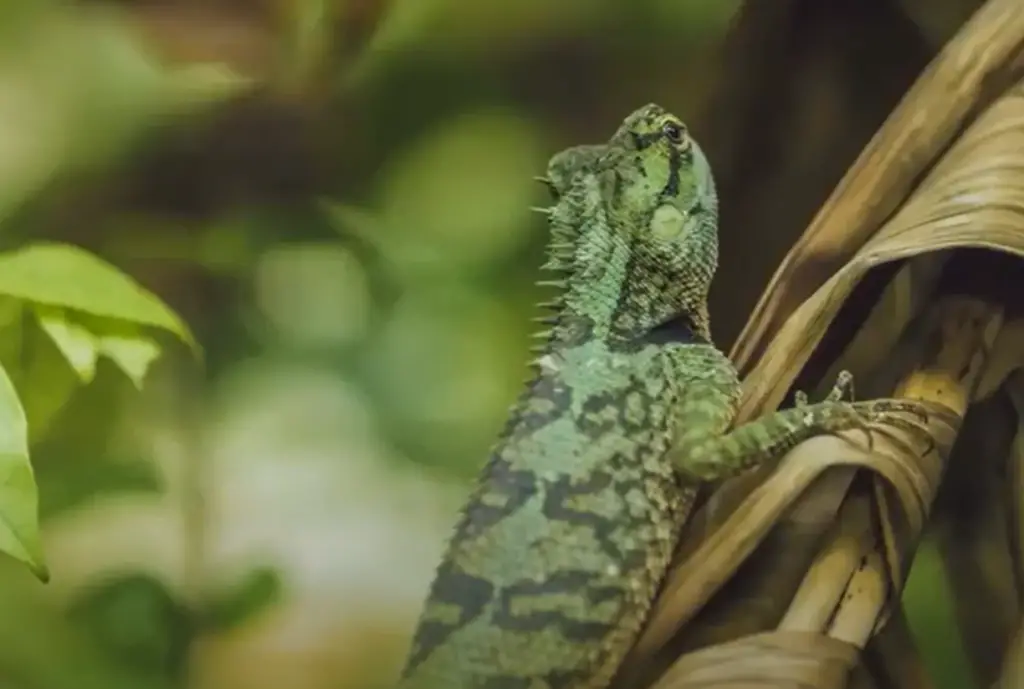
While tomatoes might be a good choice for your bearded dragon, it’s vital to feed them in moderation. Tomatoes, like other fruits, contain high water content and acids that can lead to a number of different digestive issues. It’s recommended to give tomatoes to your pet once or twice a week and limit it to small portions.
When feeding tomatoes as a part of a meal, it’s best to combine them with other nutrient-rich vegetables, so your pet does not consume too much tomato in one serving. Consider creating a “salad” mix with various ingredients like kale, broccoli, squash, and other greens.
Another important thing to note is that some tomatoes have higher acidity levels than others, which is not very good news here. You mustn’t feed your bearded dragon cherry tomatoes and other small varieties, as they tend to be more acidic.
Tomatoes are nutritious and can benefit your bearded dragon, containing vitamins A, C, and K while also bolstering your pet’s immune system’s performance. When we look at the health value of tomatoes for your bearded dragon, it’s essential to remember to feed them in moderation, prepare them adequately, and mix them with other nutrient-rich vegetables.To ensure your pet is healthy and happy, consult with a veterinary expert who specializes in reptiles to help establish a well-rounded diet rich in nutrients and minerals to help your bearded dragon thrive. Following a nutritional diet will help keep your pet in optimal health and increase the chances of a happy lifelong relationship with your adorable pet.
How to Prepare a Tomato for a Bearded Dragon
Beardies are curious and interesting reptiles to own and take care of. If you’re a new bearded dragon owner, you might want to know the best food options for your pet. One of their favorite foods is tomatoes, a juicy and nutritious fruit they really like. As beardies are omnivorous creatures, they can consume both vegetables and fruits as part of their diet.
Here we will guide you through the process of preparing a tomato for your bearded dragon.Choose the Right Tomato
Selecting the best tomato is essential for your bearded dragon’s health. You might be thinking, “aren’t all tomatoes the same?” but it’s quite the opposite. These pets should eat only ripe tomatoes that are free of rot, mold, or pesticides. Avoid purchasing unripe tomatoes or tomatoes that have a slimy texture, as these are harmful to your pet’s digestive system. Also, consider choosing organic tomatoes, free from chemicals that might harm your beardie’s health.
Clean the tomato
Before serving the tomato to your bearded dragon, you must clean the vegetable thoroughly. To do so, rinse it under running water, this will remove any dirt or residue. Then dry it with a paper towel or cloth before you cut it for your pet. Never use soap or detergent as it might leave harmful residues on the tomato.
Cut the tomato
Once you have cleaned the tomato, it’s time to cut it into bite-sized pieces that are easy for your beardie to chew. Ensure that the pieces are small enough to avoid choking or digestion issues. It would be best if you also removed the stem and any green parts of the tomato as they might contain poisonous substances that are harmful to your pet. If your bearded dragon is small, you might want to cut the tomato into tiny pieces.
Serve the tomato
After you have cut the tomato, you can place it on the plate of your pet. You can serve the tomato alone, or you can mix it with other vegetables or fruits. Always serve fresh food to your reptile pet and never leave uneaten food in their tank to avoid rotting or mold growth.
Observe your bearded dragon
Lastly, monitor your bearded dragon’s reaction to the tomato. Not all beardies are fans of tomatoes, and some might refuse them. Observe your pet’s eating habits and see if they enjoy the tomato. Suppose your bearded dragon doesn’t eat the tomato or shows signs of discomfort after consumption, such as vomiting or diarrhea. In that case, you should avoid serving it in the future and consult your veterinarian for advice.
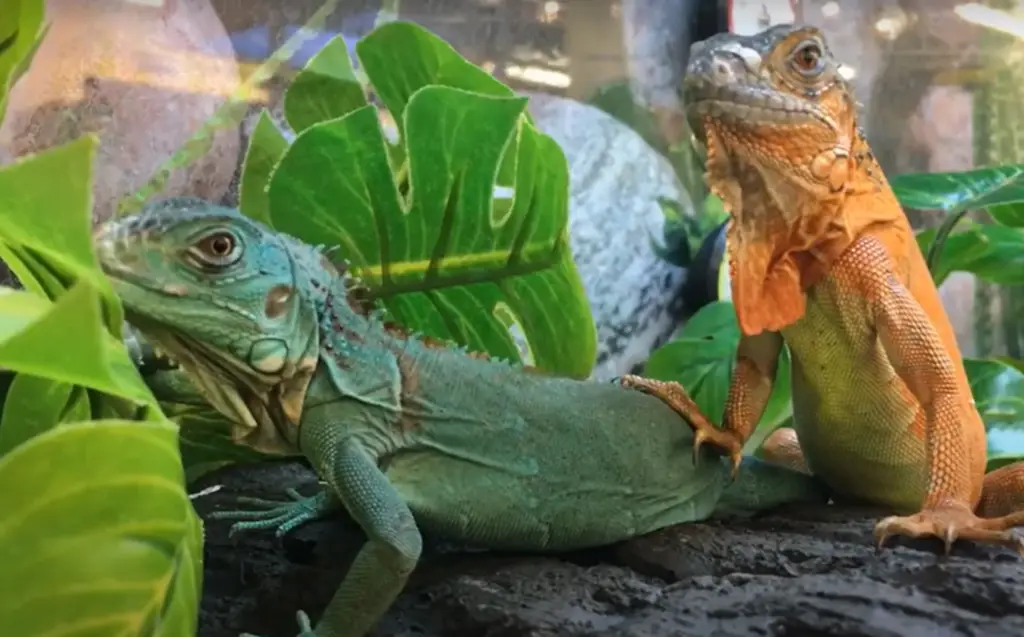
Tomatoes are a great source of vitamins and nutrients for your bearded dragon. Preparing a tomato might seem like a simple task, but you must follow the above steps to ensure your pet’s safety and health. Remember to choose the right tomato, clean it, cut it into small pieces, serve it fresh, and observe your pet’s reaction. With these steps, you can enjoy watching your bearded dragon munching on a juicy and healthy tomato.
FAQ
What vegetables are toxic to bearded dragons?
Bearded dragons should avoid eating raw spinach, kale, and beet greens. Although these veggies are nutritious and contain vitamins, they have high concentrations of oxalates that could weaken the calcium levels in your bearded dragon’s body, leading to metabolic bone disease.
Can Beardies eat fruit daily?
Bearded dragons can eat fruit, but in moderation. They don’t need fruit to survive, and too much consumption could lead to malnutrition, high sugar levels, and obesity. It’s best to limit your bearded dragon to one or two small pieces of fruit per week.
Can Beardies go a day without eating?
Yes, bearded dragons can go a day without eating, but they shouldn’t go for more than two days. Bearded dragons have a slow metabolism rate, and they don’t need to eat as frequently as humans do.
Useful Video: Can Bearded Dragons Eat Tomatoes? What you must know!
Conclusions
In conclusion, tomatoes can be a healthy part of a bearded dragon’s diet but should only be given in small quantities and as a supplemental treat. As a pet owner, it’s essential to provide the best nutrition to support your bearded dragon’s health and well-being. If you’re unsure about whether a particular food is safe for your bearded dragon, consult your veterinarian, and they can help guide you in determining the best diet for your bearded dragon.
References:
- https://www.morereptiles.com/are-bearded-dragons-good-pets/
- https://dragonsdiet.com/blogs/dragon-care/the-complete-bearded-dragon-diet-plan
- https://www.linkedin.com/pulse/can-bearded-dragons-eat-tomatoes-muhammad-javed#:~:text=Bearded%20dragons%20can%20consume%20tomatoes,diet%20for%20our%20bearded%20dragons.

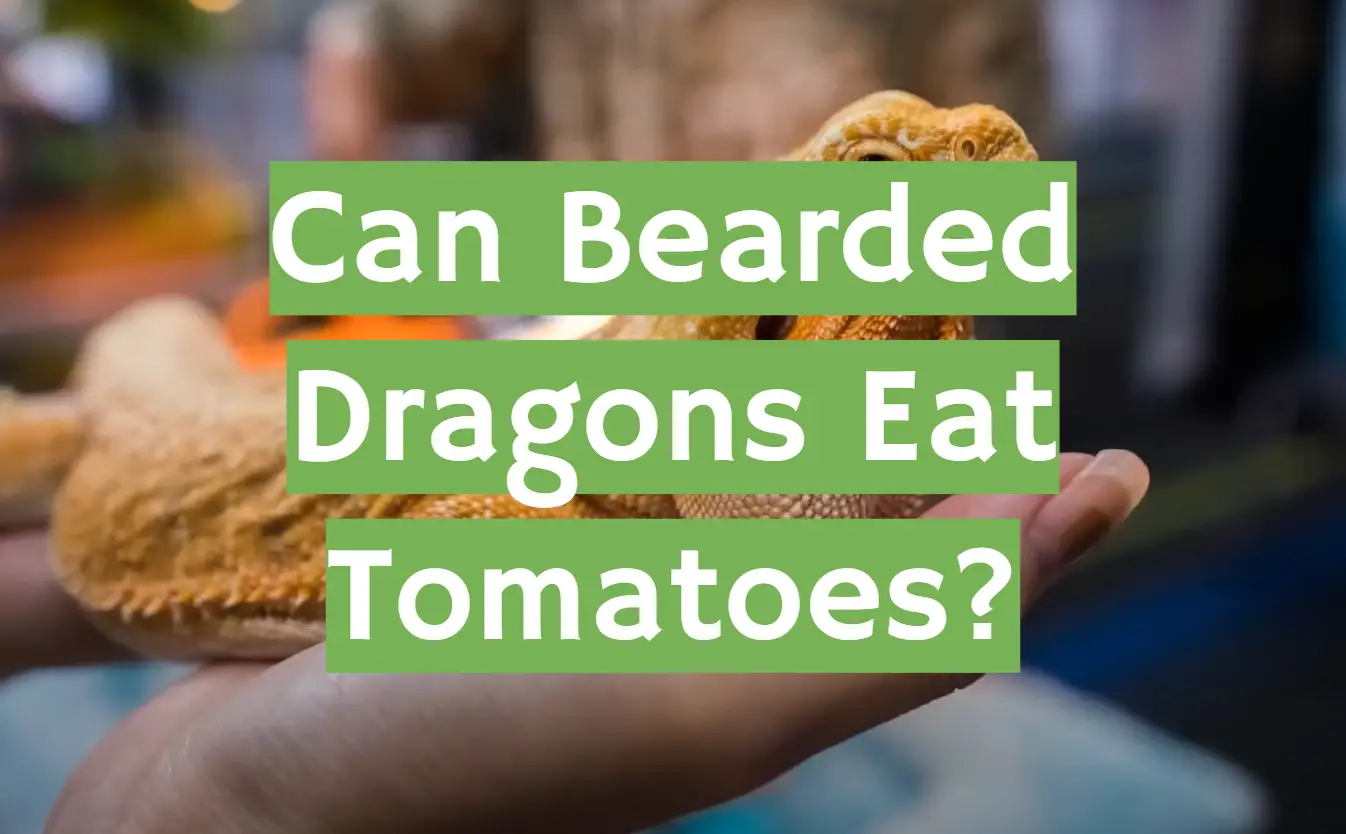
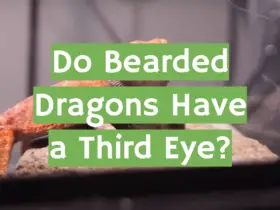

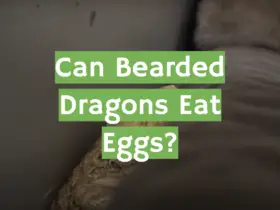
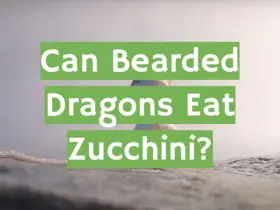
Leave a Review